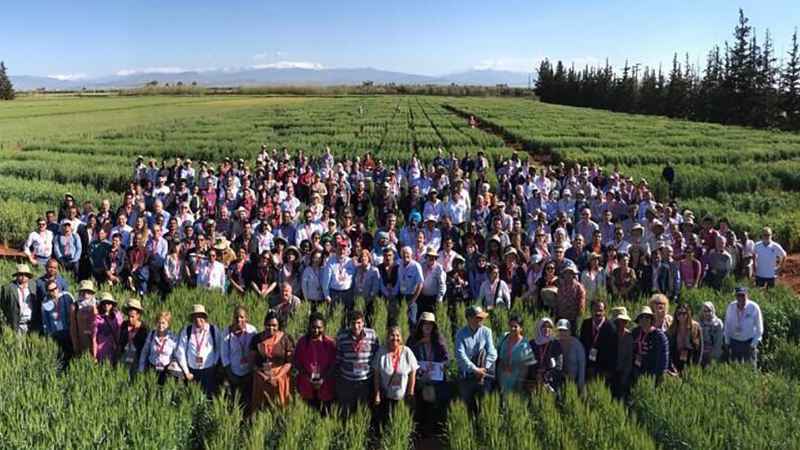ICARDA and Borlaug Global Rust Initiative hold their annual workshop

Marrakech, Morocco, April 14 – Wheat is the most widely consumed crop globally. Climate change and pathogens threaten wheat production, and therefore the world food supply. As part of an effort to provide solutions to these threats, ICARDA, Morocco’s l’Institut National de la Recherche Agronomique (INRA), and Cornell University’s Borlaug Global Rust Initiative met for the BGRI workshop.
Named after the American wheat breeder Norman Borlaug – also known as the father of green revolution – BGRI is a global consortium of scientists who work together to improve wheat yields around the world.
The workshop brought together 350 leading experts from CGIAR’s maize center CIMMYT, based out of Mexico, and researchers from national agricultural research systems from countries like Egypt, Ethiopia, India, Kenya, Pakistan, South Africa, and Sudan. Additionally, 28 participants from ICARDA's annual training course on wheat improvement attended the workshop. They discussed challenges facing global wheat production and how to breed high-yielding varieties that can resist diseases, such as yellow rust. The sessions focused on aspects of wheat breeding: host resistance, physiology, abiotic stresses, increasing the rate of genetic gain, seed multiplication, and the role of gender-responsive research. They also addressed the challenges caused by wheat pathogens and how to manage them.
Former head of ICARDA Mahmoud Solh received the Norman E. Borlaug Lifetime Achievement Award. Solh is famous for safeguarding ICARDA’s genebank as it relocated its headquarters from Syria to Lebanon. He is also well known for enriching ICARDA’s contribution to international food legume and cereal programs.
The workshop included a field visit to the Tessaout station where the participants observed yellow rust disease in bread and durum wheat. The station is where ICARDA and INRA scientists conduct their breeding and selection for drought- and disease-tolerant wheat. The group will meet again in 2019 or 2020.
